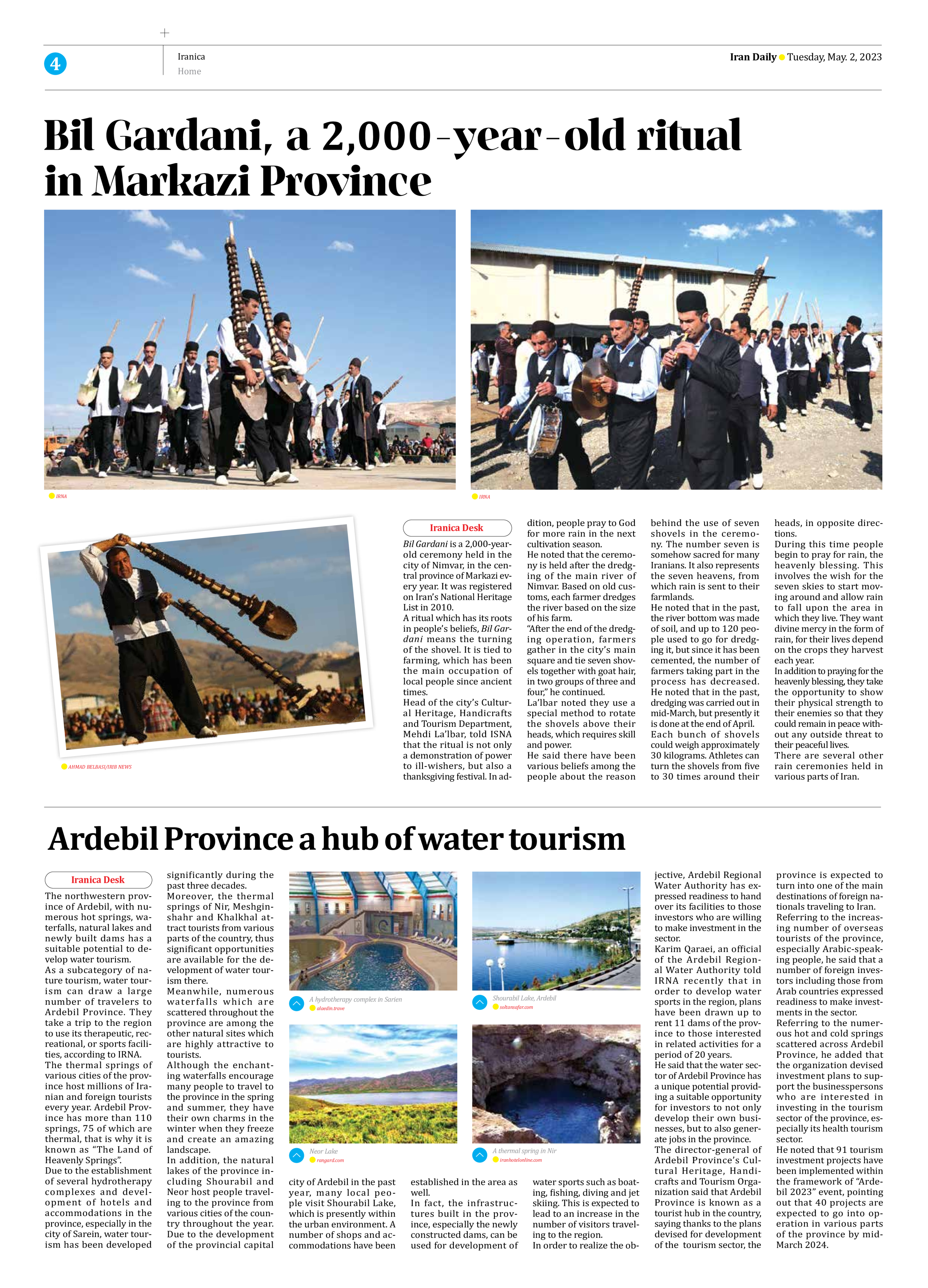
Bil Gardani, a 2,000-year-old ritual in Markazi Province
Bil Gardani is a 2,000-year-old ceremony held in the city of Nimvar, in the central province of Markazi every year. It was registered on Iran’s National Heritage List in 2010.
A ritual which has its roots in people’s beliefs, Bil Gardani means the turning of the shovel. It is tied to farming, which has been the main occupation of local people since ancient times.
Head of the city’s Cultural Heritage, Handicrafts and Tourism Department, Mehdi La’lbar, told ISNA that the ritual is not only a demonstration of power to ill-wishers, but also a thanksgiving festival. In addition, people pray to God for more rain in the next cultivation season.
He noted that the ceremony is held after the dredging of the main river of Nimvar. Based on old customs, each farmer dredges the river based on the size of his farm.
“After the end of the dredging operation, farmers gather in the city’s main square and tie seven shovels together with goat hair, in two groups of three and four,” he continued.
La’lbar noted they use a special method to rotate the shovels above their heads, which requires skill and power.
He said there have been various beliefs among the people about the reason behind the use of seven shovels in the ceremony. The number seven is somehow sacred for many Iranians. It also represents the seven heavens, from which rain is sent to their farmlands.
He noted that in the past, the river bottom was made of soil, and up to 120 people used to go for dredging it, but since it has been cemented, the number of farmers taking part in the process has decreased. He noted that in the past, dredging was carried out in mid-March, but presently it is done at the end of April.
Each bunch of shovels could weigh approximately 30 kilograms. Athletes can turn the shovels from five to 30 times around their heads, in opposite directions.
During this time people begin to pray for rain, the heavenly blessing. This involves the wish for the seven skies to start moving around and allow rain to fall upon the area in which they live. They want divine mercy in the form of rain, for their lives depend on the crops they harvest each year.
In addition to praying for the heavenly blessing, they take the opportunity to show their physical strength to their enemies so that they could remain in peace without any outside threat to their peaceful lives.
There are several other rain ceremonies held in various parts of Iran.







